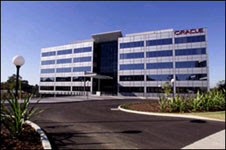Hi Everyone. We are half way in our 10 part SOA series, and I thought it apt to address our ever present challenge, skills.
A number of writers on the Net are stating that the dearth of skill in the SOA arena is one of the main contributing factors for retarding SOA adoption. Burton even suggests that the CIO should be replaced. While I agree with some of their statements, and I will discuss them shortly, I believe that the lack of skill goes much deeper than just SOA skill. I believe that with the emergence of any new IT wave there is a time lag where skills development has to catch up with the technology. Speak to any IT vendor and you will get a common answer. The biggest challenge to the marketplace adopting their software is the lack of people to implement it. SOA just adds to the complexity of the problem, as it is an approach, not a product, and requires the application of a new set of skills from both business and IT.
So how can we resolve the skill predicament we are in right now with regards SOA? Seeing that SOA requires organisational transformation, lets begin at the top, with the CIO. To successfully embrace SOA, the CIO role can be one of the most important transformation agents. The CIO though will require some key qualities, including being a visionary, being strategic and being viewed as strategic by the organisation’s leadership team, and lastly being an excellent communicator and in doing so have the ability to sell technology requirements to the business. Without this executive agent in place, SOA initiatives face a high probability of failure.
If a CIO change agent is in place, the next big challenge is to understand very early on in the adoption of SOA 1) the extent to which a SOA approach will be adopted to successfully underpin business transformation, 2) the roles that would be required, and 3) the skills gap. I have heard so often that SOA is no problem, the developers and dba’s will just get retrained! Huh? There are a plethora of roles that need to be identified, with an enterprise architect with a mandate to enforce architecture being one of the critical roles. A number of organisations do not have architects, and some are not mandated to enforce standards. Apart from the enterprise architect; roles such as integration, data and process architects, process modellers, business analysts, product technology administrators, service developers and testers, security and governance specialists need to be considered. Pooling resources and forming a SOA Center of Excellence are good strategies to discover and build skill and should form part of an official change management program. As SOA has the potential to span all tiers of an organisation, business needs to be represented and roles such as software, hardware and network specialists need to be part of the CoE. If the SOA CoE discovers that there is an incorrect skill matrix, skill sets should be developed or replaced as early on in the transformation as possible.
My last thought, for now, on skills, is the internal resource development versus external consultant debate. I have seen organisations outsource their entire architecture, which in my opinion, is IT suicide. An organisation needs to own their IT strategy; a consultant won’t do it for them. So if you do not have the time to wait for internal skill development, where could a consultant make sense? Apart from the obvious analyst, developer and architectural skill that could be injected tactically into a project, I believe that hiring a third party mentor would have a profound impact. Adopting SOA can be fraught with failure by overlooking necessary strategies like forming a SOA Center of Excellence and Governance strategy. A consultant who has experienced that journey would be of great use.
While I have concentrated primarily on “hard” skills in this entry, maybe a topic that we can explore in the future is; do organisations and employees have sufficient social skills to support a SOA approach? SOA is, by its very nature, requires social behaviour. It is forcing siloed mentalities and traditional dogma to be replaced by collaborative workplaces where alignment between lines of business and with IT is critical. So in essence evaluating cultural readines and applying organisational change management will be as important as planning for and developing hard skills. Either way you look at it, both soft and hard skill development should be planned for from the inception stages of business transformation.
The Oracle Australia and New Zealand Middleware and Technology Blog.
Wednesday, February 25, 2009
Subscribe to:
Post Comments (Atom)


No comments:
Post a Comment